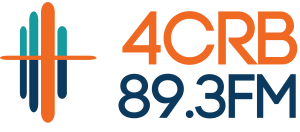So, are we going to have a recession or a slowdown?
The short answer is yes, I think going forward it would be in households’ best interests to base their spending habits on there being a slowdown. People will need to review their cash flow and change their spending habits from what they’ve been used to over the last few years.
This can be due to the change out of the Covid way of life, to a new and evolving normal.
We noticed in our retiree group a wave of 4WD and caravan purchases during Covid to allow them to head off on their Australian travels. We are now seeing these being sold and people wanting to travel back overseas again. (Yes, this will not be for everyone but note the change in thinking).
Rather than worrying about whether Australia goes into recession or not, I suggest you focus on having a robust household approach to get through this period of potential slowdown.
Interest rates over the last 50 years looked a lot like the rates we see today rather than what we’ve experienced over the last 3 years.
Here is an overview of the RBA’s cash rate over the past 50 years. The RBA’s cash rate is the rate at which banks lend or borrow funds on an overnight basis with the RBA. Here is a summary of the RBA’s cash rate target since 1973:
- 1973-1974: Ranged from around 5% to 7%.
- 1975-1982: Fluctuated between 5% and 15% due to high inflation and economic challenges.
- 1983-1986: Declined from around 12% to 7%.
- 1987-1992: Ranged from 7% to 18%, with substantial fluctuations due to economic turbulence and high inflation.
- 1993-1996: Decreased steadily from 7% to around 5%.
- 1997-2000: Fluctuated between 5% and 6%.
- 2001-2008: Declined from around 6% to 7% to reach 4.25% in 2008.
- 2009-2011: Decreased significantly in response to the global financial crisis, reaching a low of 3.00% in 2009 and then increased back to 4.75% in 2011.
- 2012-2019: Steadily declined from 4.75% to 0.75%.
- 2020-2021: Decreased further to a record low of 0.10% in response to the COVID-19 pandemic.
Problem:
People borrowed a lot more while interest rates were set to extremely low levels and this increased the demand for property and from this, we saw a massive increase in property prices.
The low interest rates were designed to help families through Covid with expenses and reduce the cash flow pressure on households, HOWEVER the governments around the world failed all of us by not wanting to raise rates. By retaining cash rates for the long period that they did, this has now caused inflationary issues and the government now has a huge problem that they should be obligated to fix.
How:
We need to increase interest rates to slow the speed of expenditure and inflation otherwise the cost of everything balloons out of control. For retirees, this is the worst thing that can happen as your money simply does not go as far; seeing home loans go from 0.5% to 5.5% this money must come from somewhere. Wages pressure works for a period in business but when the economy slows businesses can’t afford to meet these increased pressures and that is when unemployment starts to rise.
Some retirees are enjoying the higher rates of returns that we are seeing now from term deposits and whilst it is great to earn a higher rate, unfortunately the cost of living is increasing simultaneously.
Ultimately, the government needs to slow down the rate in which people are spending in order to slow the rise in inflation.
Issues:
- We will see unemployment rise.
- Some households will not be able to afford the increase interest rate costs.
- There may be forced sellers in property.
- At the moment, the cost of rent is so high people will be forced to reduce expenses to maintain rental payments.
- If you are a retiree and do not have exposure to any growth assets over time your buying power is eroded. In simple terms, what would $100 buy you today compared to 10 years ago, 20 years ago, 30 years ago and so on?… that is how long the average retirement period is.
- You will see market volatility as there is uncertainty here.
Solutions:
Cost of living pressures will have different effects on different people. Remember there are always people in a different position to you and you need to make the right decisions for your own household and your family’s position.
From history, we have seen that these periods will pass but they can take time.
Following are some strategy considerations that may help you through this time:
- Have a good cash buffer that you can access, one that’s value is not dependent on market changes. Have a minimum of 1 year’s worth of your expected spending set aside. For example, if you generally spend around $50,000 in a year then keep this in cash.
- Ideally if you can afford to have a second year’s worth of cash buffer as a backup then this is great. A term deposit/cash management account or something to earn a slightly higher rate may also be a great option here. Again, this is your backup money that you may need to access so the funds should be able to be liquidated quickly if needed.
- Secondly, have exposure to a balanced investment style approach over time. Ideally one that reweights regularly to reduce risk at certain times and take on more risk at others.
- If you are retired, then you really are investing for an income strategy. What does this mean? It means that you need to generate your desired outcome in retirement every year irrespective of market conditions.
- If you have rental properties, then you should have likely seen some increases in income over the last 12 months. You have probably also seen an increase in the costs associated with these as well. It is a good time to review this investment to ensure it is delivering what you need it to.
- Understand markets and cycles come and go. BUT remember, the current interest rates are more normal. Do not be fooled by the record low rates in Covid and use that as your point of comparison.
Can you revise your budget? Here are some tips to assist you in creating a strong budget:
- Thankfully some of the best experiences in Australia are free. Going to the beach with family, exploring hinterland bush tracks, setting up at the creek for a fish with an Esky of cold beer. Perhaps you could even chat to friends about hosting dinner parties instead of regular dinner’s out at restaurants – a win/win for everyone!
- Review your utilities. Can you get a better deal on your electricity, gas, internet provider, mobile phones etc? The answer is likely YES. What about your streaming services and pay TV? If you’re not watching them all, can you cancel the ones you use the least? You would be surprised how quickly these seemingly small expenses can add up over a month.
- Try click and collect or have your groceries delivered. This reduces the impact of impulse spending as you’re only buying what you need.
- Review your insurances for general, life insurance and health insurance policies. Speak to a professional about whether you can restructure your policies to help save you money.
- Review your memberships. Are you using your gym membership, club fees effectively? Are there free alternatives if you’re not using them as much as you had hoped? Exercising outdoors in nature and taking advantage of free community exercise sessions (like beach yoga) are great, social and cost-saving options.
- A good tip to remember is: don’t buy it unless you have the funds for it. Avoid the temptation to use sources like credit cards, Afterpay etc if you aren’t sure you’ll have the funds to pay it back. When you’re trying to revise your spending habits, the last thing you need is to incur interest repayments as well.
Tips to Surviving a recession or slowdown
Surviving a recession can be challenging, but with careful planning and proactive steps, you can increase your chances of weathering the storm. Here are some tips on how to survive a recession:
- Build an emergency fund: Start saving money for emergencies even before a recession hits. Aim to have at least three to six months’ worth of living expenses saved up. This can provide a financial cushion during a recession and help you cover essential expenses if you experience a job loss or reduction in income.
- Reduce debt: Try to pay off high-interest debts as much as possible before a recession. Minimize or eliminate unnecessary expenses and redirect that money towards paying off loans and credit card balances. Reducing debt will provide you with more financial flexibility during tough times.
- Evaluate your expenses: Take a close look at your monthly expenses and identify areas where you can cut back. Prioritize essential expenses such as housing, utilities, food, and healthcare. Reduce discretionary spending on non-essential items and find ways to save money, such as cooking at home instead of eating out. cancelling unused subscriptions.
- Network and maintain relationships: Networking is crucial during a recession. Stay connected with colleagues, friends, and professional contacts. They may provide job leads, offer support, or help you find new opportunities. Building and maintaining relationships can be beneficial in both good times and bad.
- Protect your investments: If you have investments, consult with a financial advisor to review your portfolio and make any necessary adjustments to safeguard your assets during a recession. Diversify your investments across different asset classes to spread risk and consider a long-term investment strategy.
- Prioritize mental and physical well-being: Dealing with a recession can be stressful. Take care of your mental and physical health to stay resilient. Engage in stress-relieving activities, exercise regularly, get enough sleep, and maintain a positive mindset. Surround yourself with a supportive network of friends and family.
- Utilize government assistance: During a recession, governments often introduce measures to support individuals and businesses. Stay informed about available government assistance programs such as unemployment benefits, tax credits, or small business grants. Take advantage of these resources if you are eligible.
- Stay positive and adaptable: Remember that recessions are temporary, and economies eventually recover. Stay positive, remain adaptable to changes, and be willing to adjust your plans as needed. Maintain a long-term perspective and focus on taking small steps towards financial stability.
It’s important to note that these tips are general guidelines, and the specific strategies you adopt may vary based on your personal circumstances. Consulting with a financial advisor or professional can provide personalized advice based on your situation.
Limitations to AI? ChatGTP? I can only speak (briefly) for my industry…
Interestingly, I’ve been looking into new AI technology like ChatGTP when collating information for my shows, and while it’s been a useful tool to ensure I don’t miss any important points my listeners and readers will benefit from when I am writing on a deadline, it’s important to touch on the limitations of these technologies. I think it’s important to interject with a few of these limitations to bring awareness to those reading from sources purely generated by AI such as: the possibility of producing incorrect data, biased answers being thrown into the mix, the obvious lack of human insight. There have also been reports that it does not sweep for the most up-to -date data and has even produce completely false defamatory stories! This is all part and parcel when it comes to new technology, and it’s still an amazingly exciting concept, but something to consider. I digress…
Economic Summary
I will finish this month with an economic update and investment trends. Some of the following data we have sourced from Jonathan Pain and “The Pain Report”. You can continue reading our economic summary HERE.
















